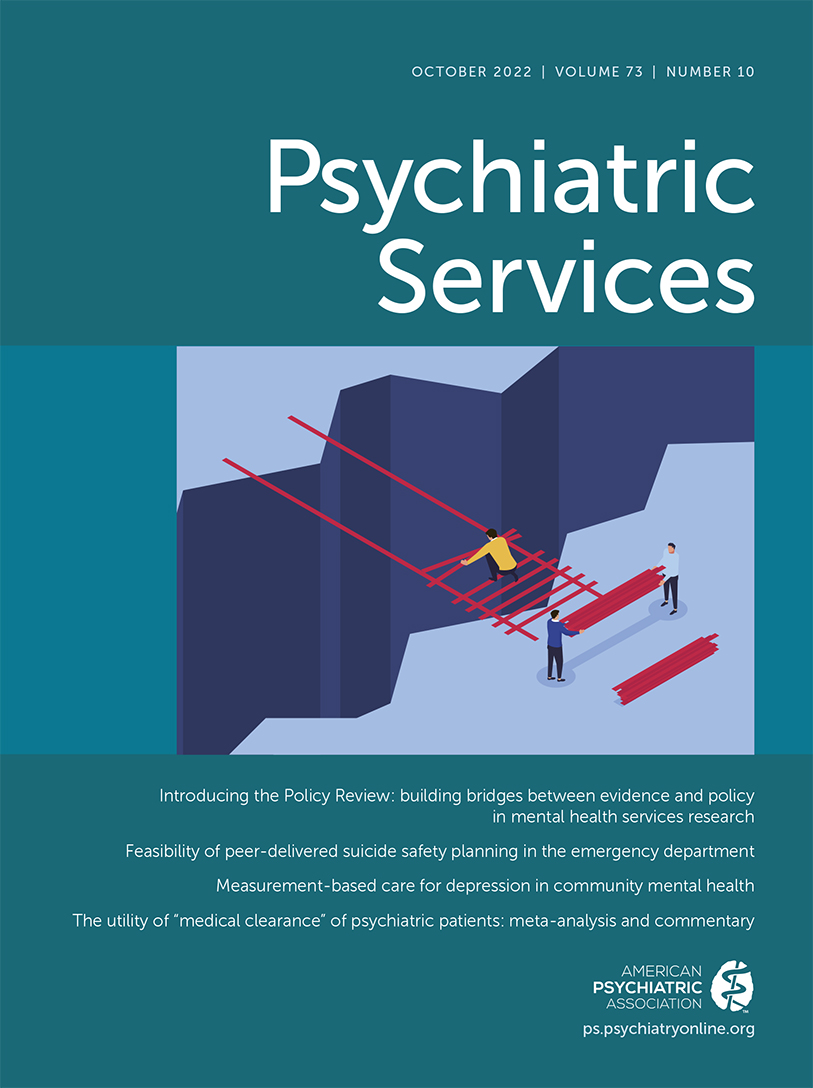Standardized Versus Tailored Implementation of Measurement-Based Care for Depression in Community Mental Health Clinics
Abstract
Objective:
Measurement-based care (MBC) is an evidence-based practice that is rarely integrated into psychotherapy. The authors sought to determine whether tailored MBC implementation can improve clinician fidelity and depression outcomes compared with standardized implementation.
Methods:
This cluster-randomized trial enrolled 12 community behavioral health clinics to receive 5 months of implementation support. Clinics randomized to the standardized implementation received electronic health record data captured with the nine-item Patient Health Questionnaire (PHQ-9), a needs assessment, clinical training, guidelines, and group consultation in MBC fidelity. Tailored implementation support included these strategies, but the training content was tailored to clinics’ barriers to MBC, and group consultation centered on overcoming these barriers. Clinicians (N=83, tailored; N=71, standardized) delivering individual psychotherapy to 4,025 adults participated. Adult patients (N=87, tailored; N=141, standardized) contributed data for depression outcome analyses.
Results:
The odds of PHQ-9 completion were lower in the tailored group at baseline (odds ratio [OR]=0.28, 95% CI=0.08–0.96) but greater at 5 months (OR=3.39, 95% CI=1.00–11.48). The two implementation groups did not differ in full MBC fidelity. PHQ-9 scores decreased significantly from baseline (mean±SD=17.6±4.4) to 12 weeks (mean=12.6±5.9) (p<0.001), but neither implementation group nor MBC fidelity significantly predicted PHQ-9 scores at week 12.
Conclusions:
Tailored MBC implementation outperformed standardized implementation with respect to PHQ-9 completion, but discussion of PHQ-9 scores in clinician-patient sessions remained suboptimal. MBC fidelity did not predict week-12 depression severity. MBC can critically inform collaborative adjustments to session or treatment plans, but more strategic system-level implementation support or longer implementation periods may be needed.



